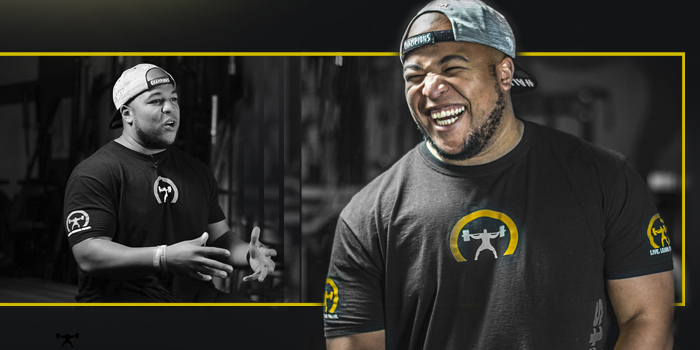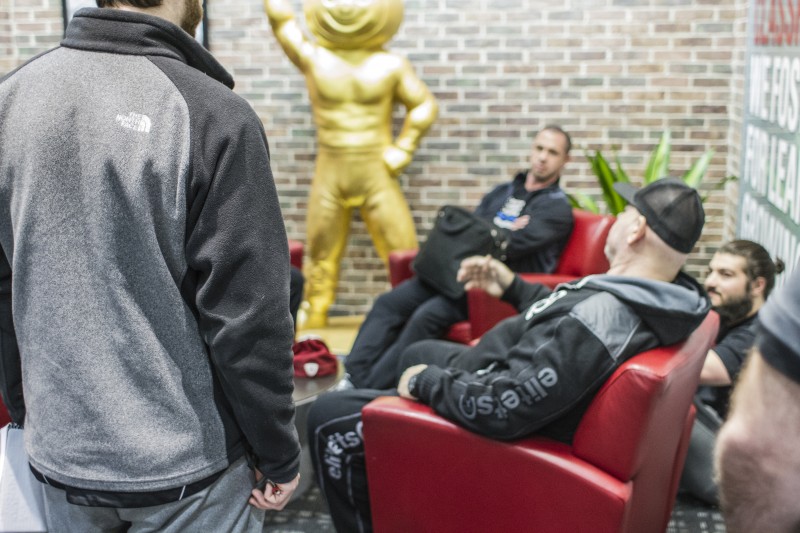
By now, I am sure everyone has heard of the situation at Oregon. If not, Google the phrase, "Oregon strength coach", then come back and finish reading this article. Of course, this article is not about Oregon, because I am not ignorant enough to think my personal opinion (either defending or condemning the coach) on this situation matters. I am merely setting the scene for the rest of the article.
Anyway, I had just got off work and decided I needed a nap to recharge my batteries before I played good fiancé and helped my lady set up appointments with wedding venues. No sooner than I had laid my head down, I received a call from one of my colleagues in the field. We had previously been texting about our opinions on the matter of the Oregon situation, but not the actions of the coach. More specifically, we had talked about the actions of the strength coaches openly arguing on social media about the situation.
RECENT: Belly of the Beast: The Hardships of Strength and Conditioning
What had both of us appalled were the things these coaches had said on social media. Understandably, these coaches gave their opinion on this coach’s method, but then they started going on about his legitimacy as a coach. Some even went as far as to say what they would do in the situation. One of my comments during our talk on the phone was that these same coaches are never going to get the opportunity to be in that situation, so how would they know what they would do? That led to a breaking point in the conversation where my colleague stated a light bulb moment for me. He said, "What qualifies these people to be mentors to young athletes?" How can we call individuals who will openly bash others on social media while they hide behind their computers mentors? These people are challenging the Oregon coach’s qualifications to be a strength coach, but who is challenging their qualifications to be mentors?
After I got off the phone, I pondered that question and thought a lot about the conversation we had recently just had. We as coaches always say we want to be mentors to young athletes; the buzzword phrase that gets thrown out in interviews is “I want to be a mentor.” The cliché thing we all say is that we got into this industry to be mentors and change lives. It is cliché but also very true. But what truly qualifies us to be mentors? Are we mentors simply because we are in charge? There are a lot of people that hold positions of power, but that does not mean they are true mentors.
I know what loosely qualifies me to be a strength coach. I say "loosely" because the qualifications apparently are not iron clad. I have a master’s degree in sports science, a bachelor’s degree in strength and conditioning, I am CPR/AED certified, and I am certified through the CSCCA. Most would look at my resume and say that I at least have all the right qualifications to be a strength coach. But does that really mean I am qualified for the job just because I meet the bare minimum qualifications?
There is no way to tangibly quantify the qualifications of a good mentor. But it is like love or hunger: when you know, you know. When I think of the mentors in my life, they all seem wise beyond their years even though I know they had made mistakes. It is because of these mistakes they have wisdom on what could be done better, and they have taught me how to overcome. It is their mistakes that have helped me learn the most because if they did not make any mistakes they would not be able to guide me through a mistake of my own. How can you know how to get through a situation if you have never been put in that situation or cannot even come close to relating to that situation?
Now, I am not saying a person of a higher socio-economic class cannot mentor someone of a lower one. But the “mentor” in this instance better be willing to learn about that kid’s life and upbringing. I have heard a lot of coaches say, “Yeah, he has had a hard upbringing,” but are not able to tell me one real fact about the kid. Shame on you!
How can you call yourself a mentor if you know nothing about your athletes? Maybe you have never been into a situation where you wondered where your next meal is going to come from, but at least have the decency to get to know the athlete that has lived that life. I have never been an 18-22-year-old female, but I took the time to get to know my female athletes at the various schools I’ve been at. This has enabled me to better understand the situations they go through. By learning their situations, I was better equipped to mentor them based on my own experiences. We are all humans; we will have some relatable situations, but you will not truly know what those are unless you dig deep. You may never have had the pressure of staying out of gang violence, but maybe you got bullied by a group of kids when you were young. It is not exactly the same but it is something relatable. For more on this, watch the movie Hardball.
WATCH: Becoming a Mentor to Young Coaches
So again, what qualifies you to be a mentor? Think of some of your mentors and the qualities they possessed. Was an internet bully one of those qualities? No? I didn’t think so. I am not saying you cannot express your opinions on social media. I mean, I was in college when social media exploded, so I am sorry my generation started this stuff. But as a mentor to younger athletes, I have to watch what I post on social media. I cannot tell athletes to be conscious of their social media presence but disregard my own. I post no political views or social issue views. Hell, I really don’t post my views at all on any issue. When I do post on a topic (which is usually comic book related), I am very careful about what I say. Lead by example.
Digging further into the idea of leading by example as a mentor, what are you doing in your private life, outside of work, to continue this example? Are you being a good father, mother, daughter, or son? Are you being someone you would want your kids being mentored by? I know we are supposed to separate our private life from work, but if you have a conscience then you need to hold your personal life to the same high standards. Being a mentor is a privilege and privileges are something you cannot just ignore when it is convenient. How can you rightfully tell your athletes to be safe on weekends if you are coming off your second DUI? How can you tell your athletes that family is important if you are not taking care of your own family the way a man or woman should? Are you personifying the qualifications of a mentor or are you just a part-time mentor when convenient?
We all say we got into this profession to be a mentor. Many coaches do not get much in the way of pay or recognition but do not mind because they are in it to be mentors. So make sure you are in fact just that: a mentor. As I stated earlier, it is not a sometimes thing, and it cannot be tangibly quantified.
So how do you know if you are in fact a good mentor? Reflect on the mentors in your life and take some time to look yourself in the mirror. If you can look in the mirror and definitively say that you would trust your own children to be mentored by someone like you, that is a good first step — but it is only a first step. You have to consistently live this life day in day out, 24 hours a day, seven days a week, 365 days a year.











